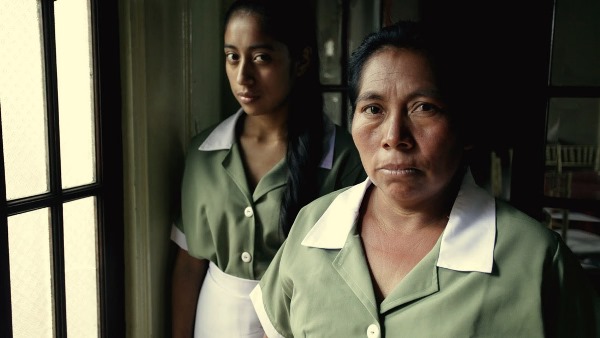

The origins of the legend of La Llorona (the Weeping Woman) go back much further than the European conquest. It’s a famous indigenous tale practically omnipresent in Latin America that has remained alive for centuries as a horror story with numerous variations, depending on the country. The ghost of a woman, crying over the death of her children that she has drowned, appears to others. She wanders repentant in a constant search for her children while punishing those who misbehave. This legend works as a cautionary tale to scare children and superstitious adults, enriched by anecdotes of those who have sworn that they have seen her or know someone who did.
La Llorona is more alive than ever in recent pop culture across borders. A traditional song about her in Pixar’s animated film Coco (2017) and The Curse of La Llorona (2019), a lame addition to The Conjuring horror film franchise, are a few examples. As proof that this legendary ghost continues to inspire new cinematic approaches, Guatemalan director Jayro Bustamante’s La Llorona is an exemplary addition.
Convalescing in his compound and suffering the early stages of Alzheimer’s disease, Gen. Enrique Monteverde (Julio Díaz) finally faces an overdue trial for his part in the genocide against the Mayan population during his 1980s military regime. In the hearings, one impactful testimony comes from an Indigenous woman—with her face covered by a veil—describing at length the terrible acts that she and her people suffered, which included indiscriminate mass shootings—children were murdered—and the rape of women of all ages. The general listens to this declaration nonchalantly. He has no remorse, willing to deny all the charges against him. Monteverde may live in eternal oblivion, but it’s the people and the nations ruined by men like the general who will live in pain from memories of such horrors.
Monteverde’s daughter, Natalia (Sabrina De La Hoz), and his patrician wife, Carmen (Margarita Kenéfic), are always at his side. What do they think about the accusations against the man they love? The easiest answer for them is to share the same degree of self-delusion with him. Most likely Natalia has doubts, especially since the father of her daughter is missing. The only known fact is that her father hated him. On her part, Carmen supports her husband with no hesitation, except when the subject is his infidelities. Even so, she finds ways to blame other women.
But what La Llorona has to do with all this? Monteverde wakes up in the middle of the night startled by the sounds a woman crying. Also, Carmen has strange dreams, where she experiences the suffering of a Mayan young girl. In the meantime, the family’s Indigenous servants have left the house, fearing that something bad will happen soon. Only Valeriana (María Telón) remains. She is the life-long housekeeper since she was young brought into the household by Monteverde. Carmen suspects that she’s her husband’s daughter, but she has learned to accept her as a blessing for her dedicated life of service. (Valeriana has earned a special place, but she’s not exactly treated as a family member). Later, the arrival of Alma (María Mercedes Coroy) as a new Kaqchikel maid coincides with the strange events that will follow. At this point, you may guess who this young woman might be.
Bustamante’s vision of La Llorona is novel, and it is a stroke of genius to imagine this popular legend in relation to the real horrors that have stained Latin American history because of sanguinary dictators. As protesters congregate around the general’s house, the imperative confinement experienced by the Monteverde family creates a claustrophobic atmosphere that leads to an intense climax, where the one who asks for justice in the present merges with the victims of an unhealed past.
The movie may try to cover more ground than it can (the observation of the domestic life of an ex-dictator is a great premise by itself, with or without La Llorona), yet as it is, Bustamante has come up with a suspenseful fable where the political outweighs the folklore. It stands as a smarter and deeper response to Hollywood’s efforts to commercially exploit the legacy of cultures it may not or doesn’t care to understand.
















Leave A Comment